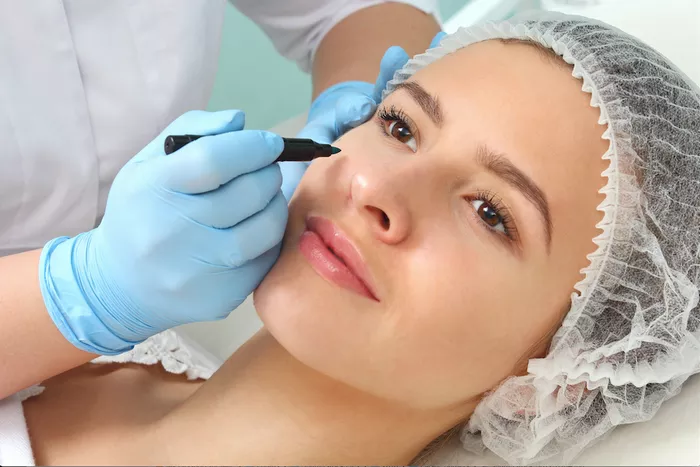Rhinoplasty, commonly known as a nose job, is a surgical procedure that aims to enhance the appearance and functionality of the nose. Whether you’ve recently undergone rhinoplasty or are considering it in the future, it’s natural to wonder about the impact it may have on your diet. One specific question that often arises is whether it’s safe to consume spicy food after rhinoplasty. In this article, we will explore the topic in detail and provide you with essential insights to help you navigate your taste buds post-surgery.
The Healing Process
Before we delve into the specificities of spicy food consumption, it’s crucial to understand the healing process after rhinoplasty. Immediately following the surgery, your nose will be sensitive, swollen, and may have packing or a splint. During the first week, you may experience discomfort, congestion, and difficulty breathing through your nose. However, these symptoms gradually subside as your nose heals.
In general, the first few weeks after rhinoplasty require special attention to ensure a smooth recovery. Your surgeon will provide specific post-operative instructions, including dietary guidelines, to promote healing and minimize complications. It’s essential to follow these instructions diligently to aid in the healing process and achieve optimal results.
Spicy Food and Rhinoplasty
Now, let’s address the burning question—can you eat spicy food after rhinoplasty? While the healing process varies from person to person, it’s generally recommended to avoid spicy foods during the initial recovery phase. Here’s why:
Irritation and discomfort: Spicy foods, such as chili peppers and hot sauces, contain compounds like capsaicin that can irritate the nasal passages and mucous membranes. Consuming spicy foods during the early stages of recovery can cause discomfort, increased nasal congestion, and even potential inflammation.
Nasal swelling: Rhinoplasty surgery involves delicate manipulation of the nasal tissues, which can lead to temporary swelling. Spicy foods have the potential to exacerbate this swelling, prolonging the healing process.
Increased blood flow: Spicy foods can increase blood flow and circulation, which may contribute to additional swelling in the nasal area. This swelling can affect the final aesthetic outcome and prolong the recovery time.
Sensitivity to smells and taste: Following rhinoplasty, you may experience temporary alterations in your sense of smell and taste. Spicy foods, known for their strong flavors, can intensify these changes and potentially create discomfort or aversion.
Gradually Reintroducing Spicy Foods
While it’s generally recommended to avoid spicy foods during the initial healing period, once you receive clearance from your surgeon, you can gradually reintroduce them into your diet. Here’s a step-by-step approach to safely enjoy spicy foods post-rhinoplasty:
Consult your surgeon: Before making any dietary changes or reintroducing spicy foods, consult with your surgeon for personalized guidance. They will evaluate your healing progress and provide specific recommendations based on your unique case.
Start with mild spices: When you feel ready to add some spice back into your meals, start with milder spices or seasonings. For example, opt for dishes with a hint of garlic, ginger, or cumin rather than intense chili peppers or hot sauces.
Test your tolerance: Introduce small amounts of spicy food and observe your body’s response. Pay attention to any discomfort, nasal congestion, or increased swelling. If these symptoms occur, it may be an indication that your body is not yet ready for spicy foods.
Monitor your healing progress: Keep a close eye on your healing progress as you gradually reintroduce spicy foods. If you notice any setbacks, such as increased swelling, prolonged congestion, or prolonged discomfort, temporarily reduce or eliminate spicy foods from your diet until you’ve fully recovered.
Stay hydrated: Spicy foods can sometimes cause dryness or irritation in the nasal passages. Ensure you stay well hydrated by drinking plenty of water throughout the day. Adequate hydration can help soothe any potential irritation and promote healing.
Listen to your body: Every individual’s healing process is unique. Pay close attention to how your body responds to spicy foods and adjust your diet accordingly. If you experience any persistent discomfort or negative effects, consult your surgeon for further guidance.
Patience and Prioritizing Your Recovery
While spicy foods may be a beloved part of your culinary repertoire, it’s crucial to prioritize your recovery after rhinoplasty. Remember, the first few weeks are critical for proper healing and achieving optimal results. By gradually reintroducing spicy foods and listening to your body’s signals, you can safely navigate your taste buds post-surgery without compromising your recovery.
It’s worth noting that individual healing times may vary, and it’s essential to follow your surgeon’s specific instructions regarding diet and recovery milestones. By adhering to these guidelines and exercising patience, you can savor the flavors of spicy foods once again, knowing that your healing process has been prioritized and protected.
Conclusion
In summary, while it’s best to avoid spicy foods immediately following rhinoplasty, you can gradually reintroduce them as your recovery progresses. Start with milder spices, monitor your body’s response, and listen to any signals of discomfort or swelling. Consulting with your surgeon throughout the recovery process is crucial to ensure you’re on the right track.
Ultimately, a successful recovery from rhinoplasty requires patience, dedication, and attentiveness to your body’s needs. By striking a balance between savoring the spice and prioritizing your healing, you can enjoy a flavorful post-rhinoplasty journey and embrace the newfound beauty of your enhanced nose.


